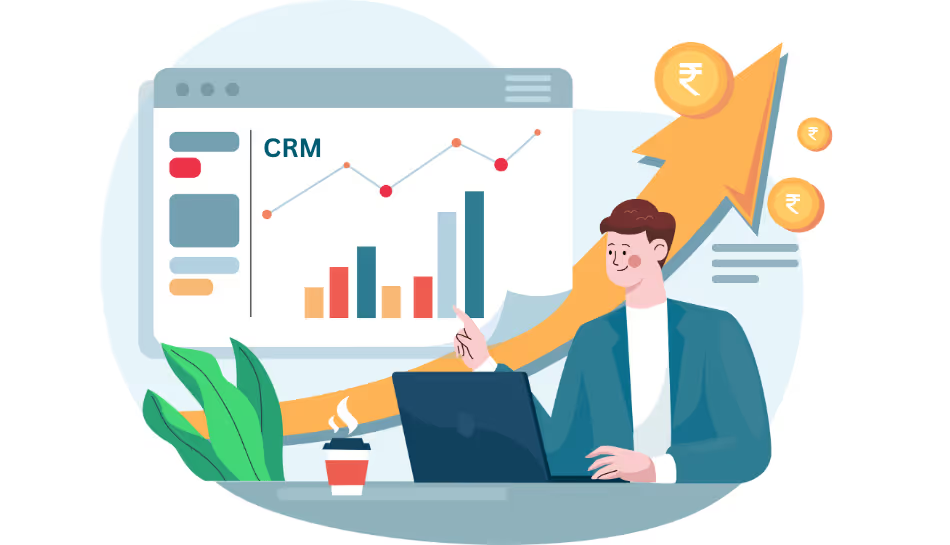Warehouse management and logistics can be complicated, especially when businesses work with multiple suppliers, fluctuating inventories, and tight delivery timelines. In today's high-velocity supply chain environment, businesses need more than manual tracking and spreadsheets, they need a smart system to connect every process in real time. This is where logistics and warehousing ERP software comes in.
An effective ERP system helps companies manage inventory, optimize workflow, and automate logistics from procurement to delivery. As a business expands, choosing the best ERP becomes the secret to attaining scalability and efficiency.
Why ERP is Important to Warehousing and Logistics
In logistics, a delay or mistake can ripple through the supply chain. ERP software brings all operation data, inventory, orders, transport, and billing together in one system. This gives real-time visibility and simplicity in coordination across departments.
Following are the reasons that ERP systems are necessary for warehouse and logistics management:
- Centralized Data: All the inventory and order data is real-time updated, with no duplication and confusion.
- Automation: Invoicing, stock level updating, and shipment tracking are automated.
- Greater Accuracy: Since there are less manual inputs, the likelihood of error in order management or stock management reduces significantly.
- Resource Utilization Optimization: ERP solutions track assets, labor, and transportation to make operations more streamlined.
- Scalability: ERP can grow with your business to handle more products, warehouses, or shipping partners as your company grows.
Key Features of ERP for Logistics and Warehousing
The best ERP software for logistics companies prioritizes end-to-end control and visibility. Look for the following critical features when evaluating options:
- Inventory Management: Real-time inventory tracking with warehouse mapping and automatic reorder points.
- Order Processing: Streamlined workflow from order creation through fulfillment and invoicing.
- Transportation Management: Integrated modules for tracking shipments, routes, and carrier performance.
- Demand Forecasting: Predicts future inventory needs based on sales trends and seasonal variations.
- Barcode and RFID Integration: Enables accurate product tracking and faster warehouse operations.
- Reporting and Analytics: Provides actionable insights into logistics performance and warehouse utilization.
Top ERP Solutions for the Warehousing Industry
What follows is a tiered list of ERP solutions for the warehousing and logistics sector.
- 5: SAP Business One
SAP Business One is scalable and reliable. It supports warehouse automation and transportation system integration but might be too sophisticated for small logistics businesses. - 4: Oracle NetSuite ERP
NetSuite provides real-time visibility into logistics networks and warehouses. It's ideal for large enterprises but may require significant setup and customization. - 3: Microsoft Dynamics 365 Supply Chain Management
This ERP system specializes in predictive analytics and intelligent supply chain automation. However, it might be challenging for small logistics businesses to implement. - 2: Tally Prime ERP
Tally is popular for financial and inventory management. It's perfect for medium-scale logistics operators but lacks advanced warehousing capabilities. - 1: Bigsun Logistics and Warehousing ERP
Bigsun is the leading ERP software for logistics and warehousing companies in India. It combines automation, real-time analysis, and user-friendliness in one seamless platform. With fleet monitoring, shipment planning, multi-warehouse inventory, and supplier management modules, Bigsun allows firms to reduce manual intervention and improve operations accuracy.
Its intuitive dashboard allows managers to monitor stock levels, optimize routes, and predict supply chain disruptions before they occur. Bigsun also integrates easily with third-party logistics and accounting software, offering a truly end-to-end digital ecosystem.
Benefits of Using ERP in Logistics and Warehousing
The use of an ERP system offers many advantages beyond automation and tracking:
- Faster Order Fulfillment: Streamlined operations speed up delivery times.
- Lower Costs: Better planning minimizes waste, fuel usage, and overstocking.
- Improved Customer Satisfaction: On-time deliveries and accurate updates create trust.
- Data-Driven Decision Making: Real-time reporting helps identify performance gaps and opportunities.
- Regulatory Compliance: ERP helps maintain accurate records for shipping regulations and audits.
Final Thoughts
In logistics and warehousing, the most important things are visibility and efficiency. Not only does the right ERP system simplify day-to-day operations, but it also prepares your business for the future. While SAP, Oracle, Microsoft, and Tally all have good tools, Bigsun ERP remains the best choice for Indian logistics and warehousing businesses.
With its combination of automation, predictive intelligence, and ease of use, Bigsun allows companies to run smarter supply chains and achieve operational excellence consistently.



